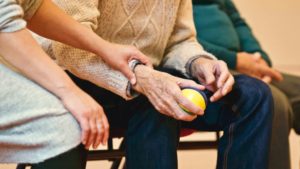
Nursing home residents were among the first Americans to receive doses of the COVID-19 vaccine since they are at greater risk than other population groups. Unfortunately, the roll-out has presented significant challenges for residents. As a result, this has placed undue burdens on their loved ones and the nursing home staff they rely on to care for them. In turn, these issues lead to negligence and lack of care for nursing home residents.
The coronavirus has weakened an already fragile environment for people in nursing homes, long-term care facilities, and veterans’ homes from the beginning.
What Are the ‘Pain Points’ of the Long-Term Care System with COVID-19?
Many of the issues facing the nation’s long-term care facilities have been around long before the virus appeared in January 2020.
The industry struggles to address these issues, many of which have been made worse by the pandemic:
- Residents and staff reluctant to take the vaccine
- Increasing numbers of staff testing positive and unable to work
- Delays in vaccine roll-out
- Residents already struggling with underlying medical conditions
- Clinical leadership teams are consumed with worry about the organization’s ability to survive
- Some long-term care staff are paid less than $15 per hour, making it difficult to retain or recruit qualified help
- Shortage of COVID-19 tests
- Shortage of personal protective equipment (PPE)
- Challenges with giving the vaccine bedside
- Over-reliance on antigen tests, which shouldn’t be used to rule out COVID-19
- Unclear federal guidance on how facilities should manage the pandemic
- Inconsistencies among branches of the federal, state, and local health agencies
- Loved ones unable to visit residents
- Residents are required to take their meals in their rooms and refrain from group activities, leading to loneliness, fear, and stress
- Poor attention to infection control and prevention
- Old, outdated facilities not set up for quarantine conditions
- Overcrowding at hospitals sometimes means residents are returned to the facility too soon when they may still be contagious
How Are Nursing Home Residents Responding to COVID-19 Vaccines?
Residents of nursing homes and other long-term care facilities are extremely vulnerable. A staggering 2 in 5 U.S. deaths from COVID-19 are among this often-overlooked population.
A survey by the nonprofit Altarum Institute lays bare the isolation and loneliness residents feel as a result of being in lockdown for so long. Many report feeling depressed as they see residents in the next room or down the hall contract COVID-19 and die.
PBS dug more deeply into the survey, citing quotes from residents who feel the lockdown, though necessary, makes them feel like they’re in prison. In the words of one respondent, “If the virus doesn’t kill me, the loneliness will.” More than 76% of respondents report feeling lonelier than usual.
Residents suffering from Alzheimer’s disease, dementia and other conditions seem perplexed by the instructions for handwashing, social distancing and wearing a mask. Some residents report that the quality of care has declined due to the pandemic. Staff members seem less able to meet residents’ needs due to increased demands on their time.
Where to Find More Information Regarding Nursing Home Residents on COVID-19
The Altarum Institute’s 46-page report gives a rare view into the plight of residents in long-term care facilities. In addition, the federal Centers for Medicare and Medicaid Services compiles relevant data on an ongoing basis. Oklahoma’s Nursing Home Care Act allows residents the authority to file a lawsuit if the facility fails to preserve a resident’s legal rights.
The personal injury lawyer of Ryan Bisher Ryan & Simons aggressively investigates and pursues injuries of any kind to residents of long-term care facilities in Oklahoma City and throughout the state. Our local Oklahoma nursing home abuse lawyers will review your case with care and make sure to hold the nursing home or long-term care facility accountable for their negligence. For more information, contact us 24/7 for a free consultation.


